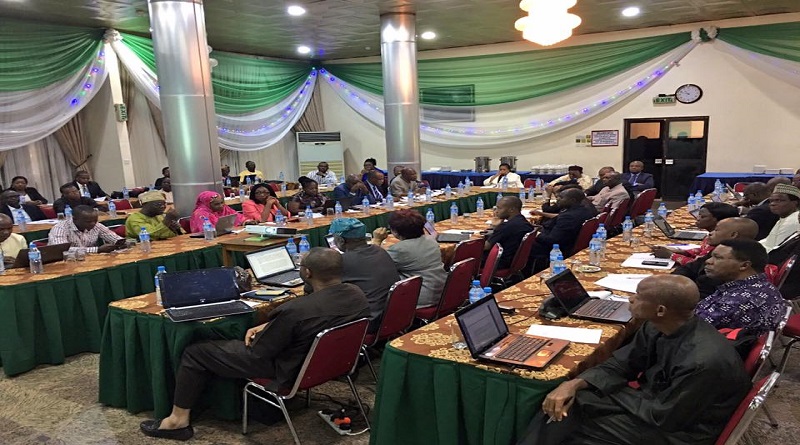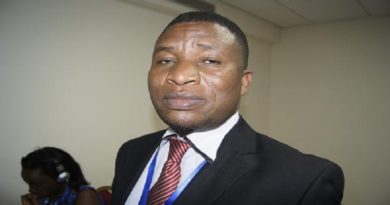Nigeria’s new National Policy on Environment to address emerging issues
Citing the need to capture emerging environmental issues and concerns and to provide a single policy which other sub-sectors will develop their strategies from in the management of the nation’s environment, the Federal Government of Nigeria through the Ministry of Environment, with the support of its development partner, United Nations Development Programme (UNDP) has reviewed the 17-year-old National Policy on Environment (NPE).
The new Policy is also to provide framework to guide the country’s efforts to deal with the ever-growing environmental challenges including sustainable management of natural resources, environmental sound technology, climate change and disaster management, land degradation and desertification and waste management.
Other environmental challenges that the new policy seeks to address are pollution, environmental hazards and disaster, urban decay, integrated coaster management, weak environmental governance, inadequate environmental education and awareness, dichotomy between environment and growth and environment and poverty alleviation, limited private sector participation in environmental management and conservation of shared natural resources.
The goal of the 57 pages NPE document divided into nine sections is to ensure environmental protection and the conservation of natural resources for sustainable development.

While declaring open a two-day stakeholders’ validation workshop in Abuja on Thursday October 20, 2016, Minister of State, Environment, Ibrahim Usman Jibril, explained that recent evidences point to the fact that human interaction with environment is creating a number of serious challenges including land degradation, flooding, drought, desertification, sheet, gully and coastal erosion and loss of bio-diversity leading to the present global challenge of climate change.
The Minister stressed that development will not be meaningful if it increases the vulnerability to environmental impacts, adding that if a nation’s environmental foundations are depleted, its economy may decline, its social fabric may deteriorate and its political structure may even be affected.
Jibril listed the remediation of environmental pollution such as the Ogoniland cleanup, revitalisation of the Lake Chad water resources to bring the Basin back to life for human survival and conflict reduction, controlling soil erosion in the south-eastern parts of the country through the implementation of NEWMAP, afforestation and development of renewable energy including recent Jatropha initiative as some of the services taken cognizance of that will enable Nigeria to follow the path of sustainable development.
The Minister of State posited that the challenges of environmental management for sustainable development in the country requires all stakeholders- individuals, non-governmental organisations, businesses, development partners and government- coming to work together in partnership to tackle these problems.
He went further, “As we thrive to validate the draft Policy, we must ensure that all existing sub-sectoral policies are subsumed into the new National Environmental Policy. This way the environmental sector will be driven by a single policy which the sub-sectors will develop their strategies from the new Policyâ€.
Jibril commended the UNDP Country Office for its support of the participatory process of giving Nigeria an important tool for environmental sustainability.
Permanent Secretary, Ministry of Environment, Bukar Hassan, said environment is very dynamic which called for a review of the 1999 document.
The PS who raised a critical question on whether Nigeria really need so much policy on environment said the exercise is to unify the policies to “have an umbrella policyâ€.
Hassan stressed, “We need to subsume all policy on environment- climate change, erosion, pollution etc- so that we can have a single policyâ€.
UNDP Country Director, Pa Lamin Beyai, in his goodwill message at the validation meeting said the NPE is a guide to action in regulatory reform, programmes, and projects for environmental conservation, reviews and enactment of legislation, at the Federal, State, and Local Government levels.
Beyai added, “We live in a complex environment, which is a life supporting system for human survival. While a properly managed environment can be geared towards productive requirements, a poorly manage done could easily threaten human survival.
“So far, the known drivers of environmental degradation are population growth, inappropriate technology and consumption choices, and poverty. Other drivers include lack of clarity or enforcement of rights of access, and use of environmental resources. This policy becomes handy in filling that gap.
“The newly launched SDGs neatly fuses human development and sustainable development. As we go through the validation meeting today, let us pay particular attention to the various sections of the policy that would enable us achieve our desired goals. I have no doubt that, together we can promote and build a sustainable and healthy environment for our existence.â€
The UNDP Country Director pledged the continuous support of the organisation to see the project to its conclusion.
Facilitator of the validation workshop, Professor Emmanuel Oladipo of University of Lagos, said to manage the nation’s environment in a sustainable way, there is need to first get the policy statement; then develop an action plan which will indicate how it will be implemented.
Prof. Oladipo who went down the memory lane on the emergence of the new Policy said the process began few years ago when he realised that the country is using the 1999 Policy on environment which prompted him to volunteer to review the document.
He however added that the new Policy will address emerging environmental and development issues in the country.
Nigeria formulated its first national policy on the environment in 1991. It was revised in 1999, and seventeen years down the lane, it is due for another revision in order to capture emerging environmental issues and concerns.
The two-day stakeholders’ validation workshop held in Abuja was attended by the academia, non-governmental organisations, media, and private sector among others.
By Kayode Aboyeji




